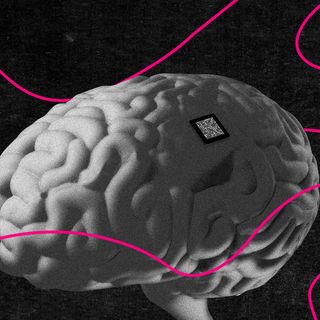
Having a Sense of Purpose in Life Helps Improve Memory, Shows Study
The link between memory and purpose may help researchers work towards better outcomes for physical and mental health.

“A sense of purpose is whatever you believe in. It is your driving force, your motivation, and your guiding light to work towards a life that you think will satisfy you,” an article described this January. Turns out, besides being a source of motivation for the present and future, a sense of purpose also helps people preserve their past in the form of richer, stronger memories, according to a new study.
And, well, memories can be extremely useful. “Personal memories serve really important functions in everyday life…They help us to set goals, control emotions, and build intimacy with others,” Angelina Sutin, lead author of the study, and a professor at the Florida State University (FSU) College of Medicine, said in a statement.
Published in the journal Memory, the new study had 800 participants who reported on their sense of purpose and completed tasks designed to analyze their cognitive processing speed. About six months later, the researchers assessed the participants on their ability to retrieve and describe personal memories.
The results suggest that individuals, who were judged to have a greater sense of purpose, also had access to more vivid and coherent personal memories than their counterparts found to have a relatively poorer sense of purpose. In addition, the former set of participants were also able to describe more sensory details about their memories.
Related on The Swaddle:
Why Scents Evoke Such Strong Memories
Reportedly, having a sense of purpose has long been associated with better episodic memory — such as performing better on memory tasks like retrieving words or images one is briefly exposed to, and then asked to remember. The present study has taken what scientists already knew a step further. “We also know people with a greater sense of purpose perform better on objective memory tests, like remembering a list of words. We were interested in whether a sense of purpose was also associated with the quality of memories of important personal experiences because such qualities may be one reason why purpose is associated with better mental and physical health,” Sutin added.
Since the first leg of the study was conducted just before the pandemic hit and the second one in July 2020, most of the memories involved in the study pertained to the pandemic. The researchers believe that became an equalizer of sorts. “We chose to measure the ability to recall memories associated with the Covid19 pandemic because the pandemic is an event that touched everyone, but there has been a wide range of experiences and reactions to it that should be apparent in memories,” explained Martina Luchetti, an assistant professor at the FSU College of Medicine and co-author of the study.
Interestingly, the present study also eliminated the role of depressive symptoms in one’s ability to recall life events. It found that the presence, absence, or amount of depressive symptoms among the participants didn’t have much bearing on their memories. This serves to further strengthen the link they established between better memory and a greater sense of purpose.
The study authors believe their findings could have exciting takeaways for mental health research. “Memories help people to sustain their well-being, social connections, and cognitive health… The vividness of those memories and how they fit into a coherent narrative may be one pathway through which purpose leads to these better outcomes,” Antonio Terracciano, another professor at the FSU College of Medicine, who also co-authored the study, told the press.
Related on The Swaddle:
Why Sexual Abuse Survivors Often Have Distorted or Delayed Memories
A greater sense of purpose comes with a variety of benefits. A study from earlier this year found that it helps ease the loneliness that comes with isolation during health crises like the one we’re recovering from. Yet another study from 2015 found that people with a higher sense of purpose are at lower risk of death and cardiovascular disease. Experts also believe it leads to healthier lifestyle choices and better mental health. As such, better memory recall seems like an added bonus.
However, poor memory is something the neurodivergent population also deals with often. But the present study wasn’t too clear on whether the link between better memory and a greater sense of purpose extends beyond neurotypical people. Interestingly, however, Robert Hunt, a psychiatrist, had written that neurodivergences like Attention Deficit Hyperactivity Disorder (ADHD) can make it difficult for people to direct their “awareness towards an intended purpose.”
“If we consider that the challenge of human consciousness is to give meaning to our existence, then the challenge of ADHD is to find and pursue personal purpose in our own lives… It is about connecting to all aspects of our lives with purpose,” Hunt had added. Does this mean the link between better memory and a greater sense of purpose is applicable across neurotypes? Perhaps, future research can tell us that.
In the meantime, given the myriad benefits a strong sense of purpose can import, perhaps we can focus on cultivating that. Meditation, anyone?
Devrupa Rakshit is an Associate Editor at The Swaddle. She is a lawyer by education, a poet by accident, a painter by shaukh, and autistic by birth. You can find her on Instagram @devruparakshit.
Related


Brain Implant Offers Hope For Treatment‑Resistant Depression
